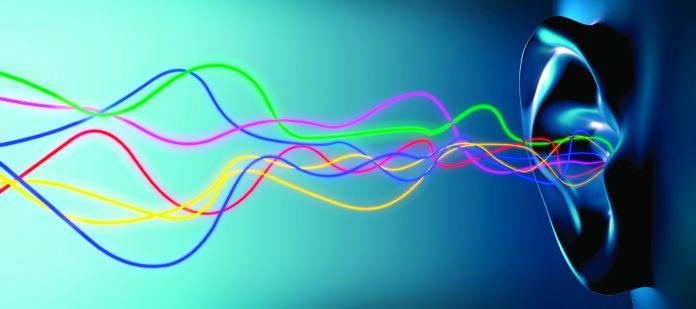Approximately 15 percent of adults in the U.S. report some trouble hearing. The older we get, the more likely it is we will experience some degree of hearing loss. Nearly 25 percent of Americans ages 65 to 74 have hearing loss that is considered disabling. This increases to 50 percent for those 75 and older.
“The ability to hear allows us to connect to the world around us,” says Alison Packer, AuD, clinical audiology manager at Tufts Medical Center. “Hearing helps us engage in conversations both professionally and personally. It also plays an essential role for safety, allowing us to detect things like warning signals, alarms, and approaching vehicles.” Emerging research suggests it may also be important to overall health.
Hearing and Health. In addition to reducing quality of life, hearing loss has been associated with higher risk for several adverse health outcomes. While cause-and-effect has not been definitively proven, evidence is mounting. Let’s take a look at some reviews of research:
➧ Depression: An analysis of 35 studies published in 2020 found that hearing loss was associated with greater odds of depression in older adults.
➧ Dementia: The 2020 Lancet Commission report on dementia prevention, intervention, and care confirmed hearing loss as the leading modifiable risk factor for dementia. A 2021 review of research on the association between hearing loss and cognitive decline suggested several theories that might explain this association: sensory deprivation may cause permanent changes to brain structure and function; the increased brain power needed to compensate for the reduced sensory input draws resources away from other processing; or the hearing problems and cognitive changes may have the same underlying cause. The social isolation, depression, and decreased physical activity often associated with hearing loss may also increase risk for dementia.
➧ Death: A 2022 analysis combining information from 26 observational studies that included over a million participants concluded that hearing loss was associated with higher risk of death. (This does not mean hearing loss is deadly. Some conditions and events that contribute to hearing loss, like high blood pressure, type 2 diabetes, stroke, and dementia, also increase risk of death.)
Hearing Help. Luckily, hearing loss is often easily corrected—if we’re willing to accept help. A recent study found that using hearing aids regularly was associated with lower risk of death in U.S. adults with hearing loss compared to never using them. A randomized controlled trial involving nearly 1,000 participants ages 70 to 84 found that hearing aids did not slow cognitive decline over three years compared to general health education in the group as a whole, but hearing aids did make a difference for those at higher risk for cognitive decline.
Since hearing loss is related to other health conditions, being aware of any hearing loss may help focus you and your healthcare providers on diagnosing and treating other problems.
What to Do. “If you find you are having difficulty following along with conversations, especially in the presence of noise, make an appointment to have your hearing tested,” says Packer. “Frequently asking people to repeat what they’ve said, having to turn up the volume on the TV or radio, hearing a persistent ringing or buzzing sound in your ears (tinnitus), and withdrawing from social situations because it’s hard to follow what’s going on are other signs a hearing assessment is necessary. Even if you are not experiencing problems, a baseline hearing test is a good idea. I recommend everyone get one starting around age 55.”
➧ Get a Baseline. A baseline hearing test can help your doctor or audiologist detect any hearing loss in the future. ➧ Get Tested. If you or those close to you suspect you may be having problems hearing, do not hesitate to get tested. ➧ Explore Options. Hearing aid technology has come a long way! Explore your options with an expert before deciding they are not for you.
Unfortunately, most people who could benefit from hearing aids don’t get them. According to the National Institutes of Health, only 16 percent of adults ages 20 to 69 and 30 percent of those 70 and older with hearing loss have ever used a hearing aid. “Hearing aid reluctance is very common,” says Packer. “Hearing aid technology has come so far! From Bluetooth connectivity and rechargeable batteries to smaller size and enhanced cosmetic appeal, hearing aids are certainly worth a try. Don’t become overwhelmed by the options. An audiologist can walk you through your specific hearing loss and help you find the level of technology and style of device right for you. Most of our patients immediately notice an improvement and wish they had started wearing hearing aids sooner!”
























